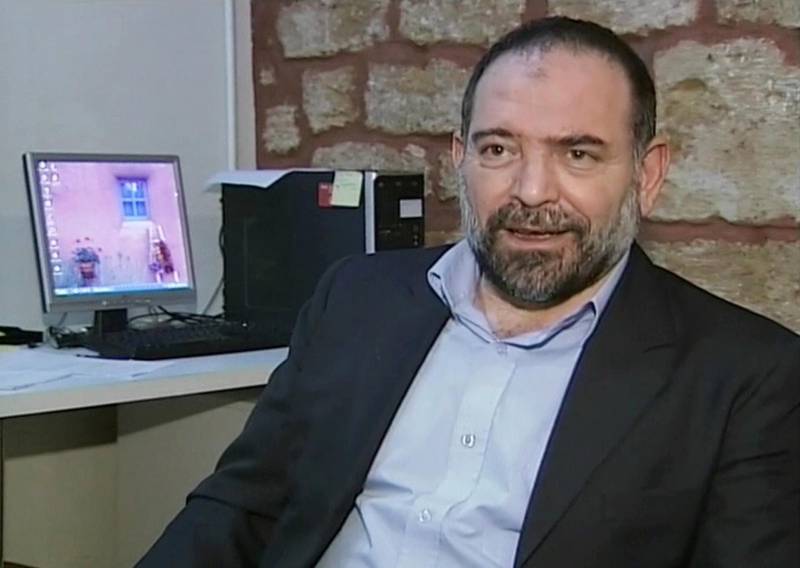قاضي لبناني جديد سيوكل له ملف التحقيق في جريمة اغتيال لقمان سليم
New judge to take over Lebanon investigation of Lokman Slim killing
Sunniva Rose/The National/October 09/2021
Inquiry was transferred in June from south Lebanon to Beirut, then halted.
The investigation into the killing in February of prominent Lebanese intellectual and Hezbollah critic Lokman Slim will start again later this month after a five-month break, a high-ranking judicial source told The National. Beirut First Investigative Judge Charbel Abou Samra is expected to hear plaintiffs’ claims on October 21, said the source.
Under Lebanon’s system, an investigative judge carries out pretrial inquiries into allegations of crime and in some cases makes a recommendation for prosecution. No accused party will be present because no one has claimed responsibility for the assassination of Slim, 58, who was found shot dead in his car on February 4 in south Lebanon on the side of a busy motorway near Saida city.
“We have been waiting for this the whole summer,” said Slim’s widow Monika Borgmann. “Things are moving forward.”
Neither the family nor their lawyer Moussa Khoury had been officially notified of the hearing at the time of writing, but the judicial source said that this should take place on Monday. Lebanon has been suffering for the past two years from a crippling economic crisis the has caused the near-collapse of public services, including the state power utility.
Legal proceedings are delayed.
The investigation was put on hold after being transferred from Saida city, to Mr Abou Samra in Beirut in June, at the request of state prosecutor Ghassan Oueidat.
Mr Abou Samra had a choice between taking over the investigation himself or handing it over to another judge. A lawyers’ strike and a two-month judicial holiday, which happens annually, were major factors in the five-month interruption in the probe.
Mr Khoury said that such transfers of an investigation may take place when a judge believes that public safety is at risk. This could include protests or public displays of anger triggered by controversial cases.
Hezbollah, which Slim’s family believes is responsible for his death, has a strong influence in south Lebanon. Legal experts previously told The National that the first judge to work on Slim’s death, Rahif Ramadan, was close to Hezbollah’s political ally the Amal Movement. Mr Ramadan denies this.
Information gathered by Mr Ramadan has been transferred to Mr Abou Samra, who can also work with documents provided by Slim’s family and ask for assistance from the local police or another judge, said the judicial source. Hezbollah, which also has a powerful national and regional militia, has repeatedly rejected accusations that it is linked to Slim’s killing.
Yet a report recently published by Lebanese media watchdog Skeyes shows that high-profile pro-Hezbollah journalists led a Twitter campaign to vilify Slim shortly after his death. They both denigrated Slim as an irrelevant commentator and accused him of collaborating with the US and Hezbollah’s arch-enemy Israel.
Slim, who co-ran a local NGO with his wife, had been receiving death threats for more than a decade. In December 2019, after threats were placarded directly on his home’s walls, Slim wrote that the leaders of Hezbollah and its ally Amal should be personally held responsible if something happened to him. Slim lived in a Hezbollah controlled southern suburb of Beirut, home to his family for more than a century.
His killing added to a list of political assassinations in Lebanon, a grim phenomenon that some trace back to the start in 1975 of a bloody 15-year civil war, when Saida-born politician Maarouf Saad became the first prominent victim.
Killers are rarely found or jailed. Activists often criticise what they call Lebanon’s “culture of impunity and political interference” in judicial processes.
UN human rights experts called in March for the Lebanese government to ensure a “credible and effective investigation” into Slim’s death, writing that authorities should consider embedding a unit of international experts to advice and support local probes into political assassinations.




















